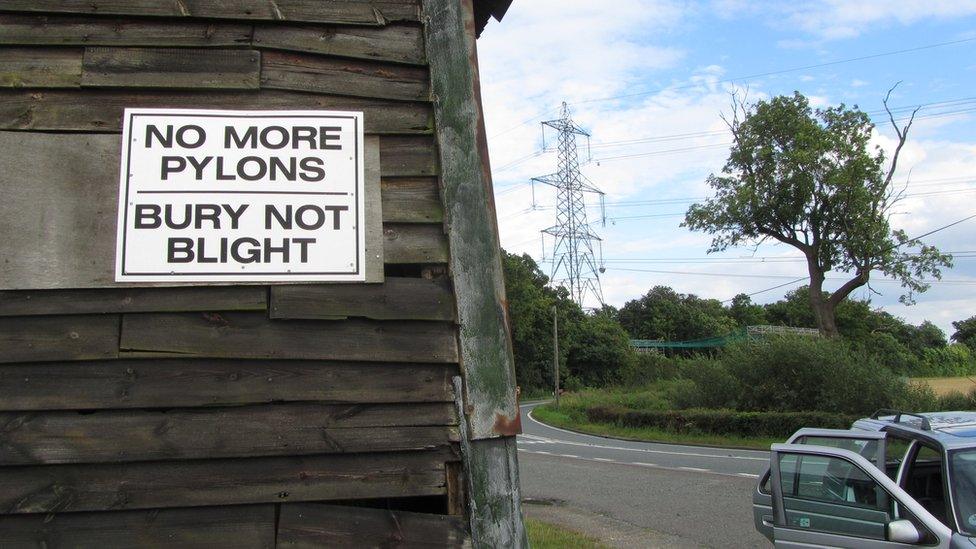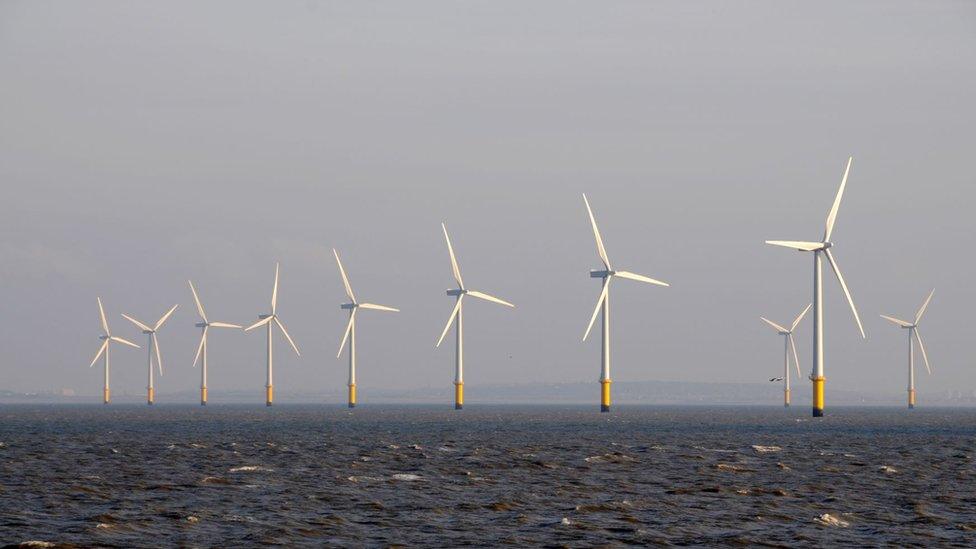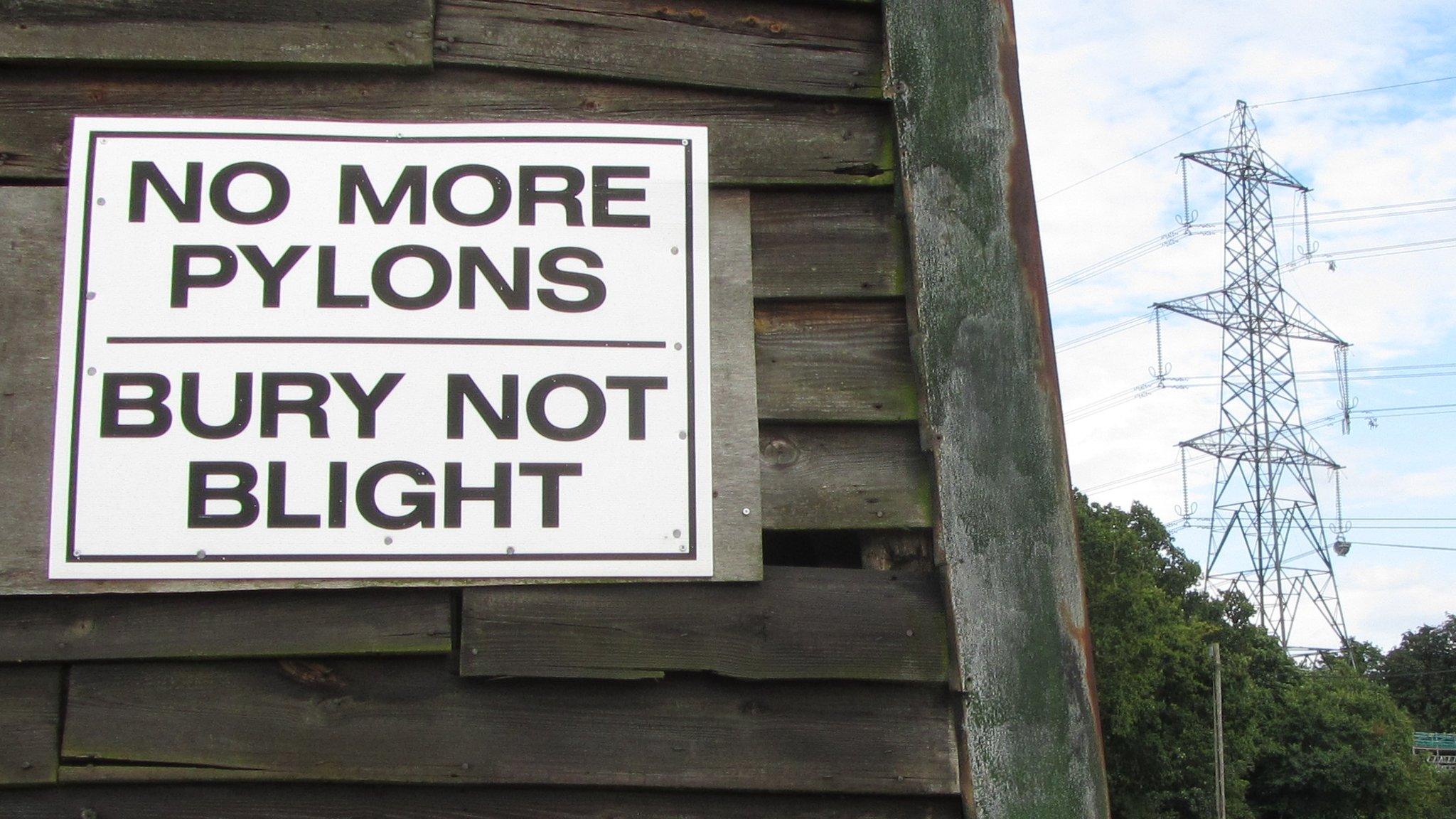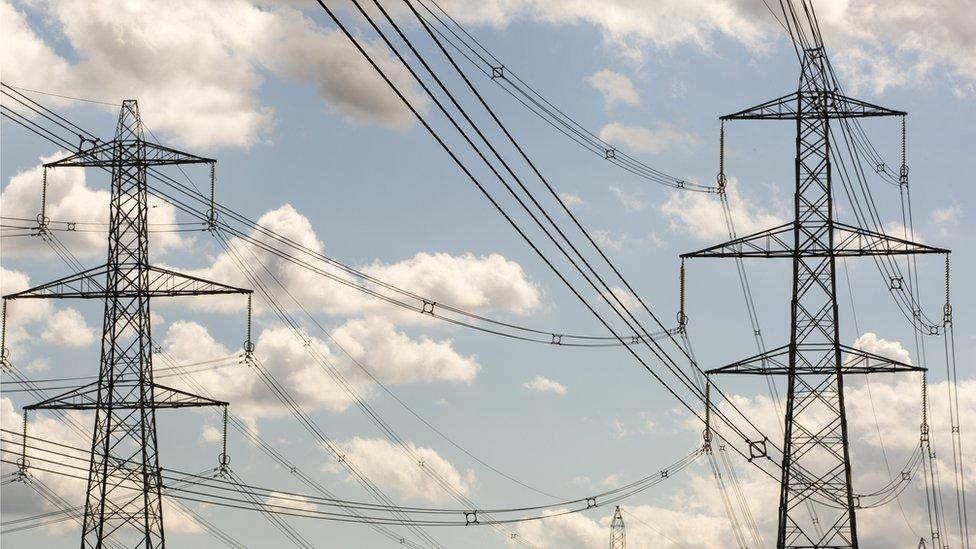Suffolk council says pylons 'will industrialise countryside'
- Published

National Grid said the power line was "essential"
A planned 112 mile-long (180km) power line suspended mostly on new pylons would be the "industrialisation of our countryside", councillors said.
Babergh District Council in Suffolk agreed to object to National Grid's plans for the high voltage line from Norwich to Tilbury in Essex.
The authority said the line should be under the sea rather than over land.
National Grid said the pylons were needed to meet the increasing demand on the network.
Suffolk County Council has also said it intended to object to the proposals, external.
It said it believed there were "better ways to manage the project".

A consultation on the plans is running until 16 June
The pylons are part of a proposed 400kV electricity transmission line between Norwich and a new Bramford substation near Ipswich, and then to Tilbury in south Essex, called the East Anglia Green Energy Enablement, external project.
National Grid said the line was needed to carry electricity from offshore wind turbines.
It has proposed to run the cables underground through the Dedham Vale area of outstanding natural beauty on the Essex/Suffolk border, the Local Democracy Reporting Service said.
Concerns over the project have been previously raised by raised by six East Anglian MPs, Mid Suffolk District Council and campaign groups.
Babergh Liberal Democrat councillor Dave Busby said: "As far as we are concerned there is only one option, and that should be subsea.
"We should be resisting every industrialisation of our countryside.
"We are rural counties - tourists come to see us for that, and people live here because of that."
Independent Conservative council leader John Ward said: "A large number of people are currently potentially affected by it in terms of their wellbeing, as well as their house price values which inevitably will be impacted by it.
"It's causing a lot of people a lot of upset and anguish, so this particular issue must be resolved to set their minds straight."
National Grid said the existing network was developed in the 1960s and, to date, had been able to meet demand.
However, increased renewable and low-carbon power by 2030 meant demand on the network would increase significantly and the existing power lines did not have the capacity to meet demand without reinforcement.

Find BBC News: East of England on Facebook, external, Instagram, external and Twitter, external. If you have a story suggestion email eastofenglandnews@bbc.co.uk, external
- Published6 June 2022

- Published1 June 2022

- Published10 May 2022

- Published22 April 2022

- Published18 March 2022
